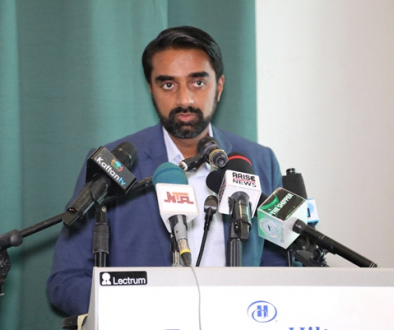Nigeria: The Origins of Her Disgrace

No one doubts the challenges that Nigeria currently faces. According to the World Bank, Nigeria is blessed with 708,000 Sq. Km of agricultural land, the second largest in Africa yet research suggests less than half of this has been exploited to produce crops and livestock to stave off hunger and poverty. Food imports into Nigeria are estimated to have grown at the rate of 11% p.a. since 1980 yet Nigeria remains the country with the largest percentage of Small holder farmers in Africa. The impact of this food deficiency is seen in Nigeria’s protein gap. 40% of the body’s dry matter is protein however, intake of animal protein is at present 4.82g/head/day as against the minimum of 35g recommended by FAO. According to the British Council, about one fifth of the world’s 60 million out-of-school children are in Nigeria and children fortunate enough to be in school do not learn much. It is estimated that no more than 35% of Nigerians have access to modern healthcare services and the country has a housing gap of 18 million units growing at rate of 2million units annually, as noted in the report by Consolidated Discount Limited. Nigeria’s textile industry grew at 67% p.a. between 1985 and 1991. By 1991 it employed 25% of manufacturing sector workers. It was eventually killed by smuggling and cheap imports. In the period 1970-2010, there has been a steady decline in the quality and quantity of public services, and expenditures in this area are said to have yielded very poor returns.
Nigeria can be described as the proverbial shoemaker whose children go about barefoot, which is something of a disgrace. Her citizens that ought to be primary beneficiaries of her rich endowments appear to benefit the least from what she is blessed with and nations that once looked up to Nigeria (in 1960) but which have since surpassed her (in their ability to provide for their own), now shake their heads at her in disgust. How did Nigeria become such a disgrace? According to a public affairs commentator, “It has become almost a mantra or a pre-recorded message with most Nigerians that corruption is the main problem with Nigeria.” However, according to Chinua Achebe, “the trouble with Nigeria is simply and squarely a failure of leadership.” Did one cause the other? Are they two sides of one coin? Are these two separate problems Nigeria is plagued with? In this article, we examine why Nigeria is in the disgraceful situation in which she now finds herself despite her natural endowments. We examine what corruption means in the context of leadership and conclude with a new definition of the mess the country is mired in from decades of bad governance.
Good Governance suggests that citizens achieve sustained and sustainable improvements in their standard of living in ways that reduce disparities in income and well-being between different groups in society, without damaging the ability of future generations to enjoy the same. The fundamental objectives and directive principles of state policy for Nigeria as stated in The 1999 Constitution include that “Sovereignty belongs to the people of Nigeria from whom government through this Constitution derives all its powers and authority; the security and welfare of the people shall be the primary purpose of government: and, the participation by the people in their government shall be ensured in accordance with the provisions of this Constitution.” It is clear from the above that the intention of the Nigerian State is to provide good governance to the citizens of Nigeria through a representative democracy. A democracy is a system of government by the whole population or all the eligible members of a state, typically through elected representatives. Is that what is in operation? Or do we have a form of government in which power is placed in the hands of a small, privileged ruling class (elites)? The latter being the dictionary definition of an Aristocracy. Leadership under a democracy is not the same thing as leadership under an aristocracy.
Democratic Leadership is one in which members of the group take a more participative role in the decision-making process. Everyone is given the opportunity to participate, ideas are exchanged freely, and discussion is encouraged…The leader of the group is still there to offer guidance and control. The democratic leader is charged with deciding who is in the group and who gets to contribute to the decisions that are made. Researchers have found that the democratic leadership style is one of the most effective and leads to higher productivity, better contributions from group members, and increased group morale. The poor development outcomes and the feeling of alienation by different groups in Nigeria e.g., The Niger Delta insurgency; Boko Haram; Oodua People’s Congress; MASSOB; iPOB; The Shi’ite Movement; Rising Militancy of “Fulani Herdsmen” suggest we have not been under democratic leadership so far.
An aristocratic person, according to the dictionary, implies one who usually gains social status through birth right rather than demonstrated merit. The aristocratic leader sees him or herself in the ideal, and will frequently not feel himself or herself bound by the conformities of the day or people with whom he/she lives. The elements of aristocratic style are known to be education, [positions of] responsibility, wealth, taste and style. Considering one’s self above the “conformities of the day or the ordinary folk in society” are hallmarks of aristocratic leaders and when this is corrupted it tends towards impunity, primitive accumulation, bribery, corruption and general rule breaking. It is therefore not surprising that some scholars feel that “there has been a concentration of wealth and economic power in the hands of a few, to the detriment of under privileged and common people in Nigeria.” A corrupted aristocracy can also lead to “misplaced priorities and ineffective allocation of funds by political leaders coupled with inefficient mechanisms, systems and processes for spending by the civil service result in very poor development outcomes for Nigerians” in the words of some commentators.
So, “dishonest or fraudulent conduct by those in power, typically involving bribery” – Google; “The abuse of entrusted power for private gain” – Transparency International; “The use of or attempt to use bottlenecks in any system for personal profit or private gain” – The Integrity Organization Ltd. (Gte.); “The perversion or attempt to pervert the legal or right process in an entity for personal profit or private gain” – The Integrity Organization Ltd. (Gte.) are all definitions of corruption that make sense when applied to Nigeria’s aristocracy.
Corruption can therefore be defined as what you get when groups of aristocrats struggle for supremacy in a context where there is no sovereign to adjudicate over their squabbles: Chinua Achebe was right, “the trouble with Nigeria is simply and squarely a failure of leadership” and Nigerians are also right that “…corruption is the main problem with Nigeria.” These are two sides of the same coin describing the disgraceful situation in which Nigeria now is!


